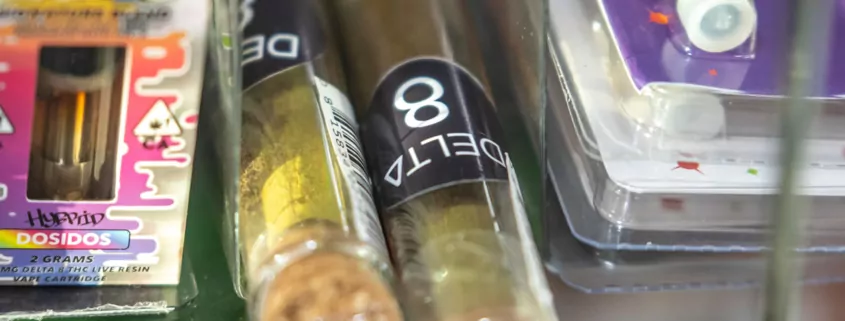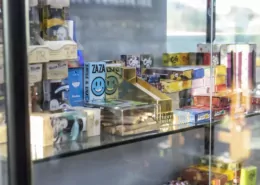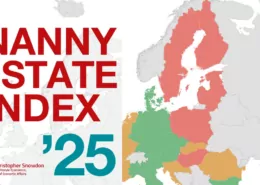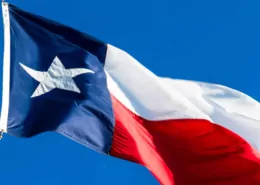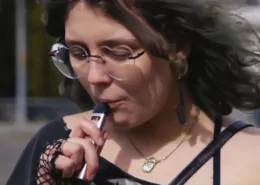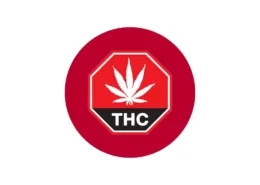Texas Poised to Ban Most THC Products (SB3 Guide)
Texas is poised to enact a significant ban on a wide range of THC-containing consumable hemp products, including popular items like delta-8 vapes, gummies, and THC-infused drinks that offer effects similar to marijuana. The proposed legislation, Senate Bill 3 (SB3), has navigated most of the legislative hurdles and, if it receives final approval and the Governor’s signature, will dramatically reshape the hemp and cannabis landscape in the state. This move aims to close what lawmakers describe as a loophole that emerged after hemp legalization, but it faces strong opposition from consumers, advocates, and businesses within the burgeoning Texas hemp industry.
The proposed ban is a top legislative priority for Lieutenant Governor Dan Patrick and has generated considerable debate. While Governor Greg Abbott has not yet publicly commented on whether he would sign or veto the bill, its progression signals a major policy shift. This guide breaks down what SB3 entails, who will be affected, the timeline, and the potential consequences.
What are “Consumable Hemp Products” Under the New Law?
Senate Bill 3 casts a wide net. Under its provisions, “consumable hemp products” would include any food, drug, device, or cosmetic that contains hemp or hemp-derived cannabinoids. This encompasses a vast array of items currently sold across Texas, such as gummies, edibles, tinctures, vapes, and topical ointments containing various cannabis compounds.
The critical distinction lies in the type of cannabinoid. The bill specifically targets and would ban consumable hemp products containing any synthetic cannabinoid (often referring to compounds like delta-8 THC, delta-10 THC, HHC, etc.) and any product with more than trace amounts of intoxicating, psychoactive THC isomers beyond the federally defined 0.3% delta-9 THC limit for hemp.
Importantly, non-intoxicating and non-psychoactive cannabinoids like CBD (cannabidiol) and CBG (cannabigerol) would remain legal. However, even these products, if sold as consumables, would eventually fall under new registration requirements with the state.
To understand the context, it’s useful to remember that hemp was legalized federally by the 2018 Farm Bill and subsequently in Texas in 2019. Hemp is defined as cannabis containing 0.3% or less delta-9 THC by dry weight. This legalization inadvertently opened the door for products containing other psychoactive cannabinoids derived from hemp, like delta-8 THC, which offer effects similar to delta-9 THC found in marijuana. Marijuana itself (cannabis exceeding 0.3% delta-9 THC) remains illegal for recreational use in Texas.
Who Will Be Affected by the THC Product Ban?
The ramifications of SB3, if enacted, will be widespread:
- Consumers: Texans who currently use delta-8 THC, delta-10 THC, HHC, and similar intoxicating hemp-derived products for recreational, wellness, or self-medication purposes (especially those with conditions not covered by Texas’s limited medical marijuana program) will lose legal access to these products.
- Businesses: Thousands of retailers across Texas, including dedicated smoke shops, CBD stores, convenience stores, and online vendors, that currently sell these intoxicating hemp-derived products will be forced to remove them from their shelves. This could lead to significant revenue loss and potential business closures. According to one estimate, the Texas hemp industry accounts for roughly 50,000 jobs and generates $8 billion in annual revenue.
- Manufacturers: Companies producing these intoxicating hemp-derived products will no longer be able to legally manufacture or distribute them within Texas.
- CBD/CBG Market: While CBD and CBG products remain legal, advocates like Heather Fazio, director of the Texas Cannabis Policy Center, express concern that the bill’s strict standards could make it difficult even for these products. “It’s very difficult to even be able to isolate CBD in a way that completely eradicates every other element of the plant,” Fazio stated, suggesting that compliance could be challenging for many manufacturers, potentially reducing the availability of legal CBD products.
- Hemp Farmers: Although lawmakers and Texas Agriculture Commissioner Sid Miller assert the legislation won’t harm farmers, some farmers argue it’s nearly impossible to produce hemp without trace amounts of various THC isomers, even for non-consumable products like fiber or grain. They fear the bill could inadvertently harm the broader hemp farming industry.
The Rationale Behind the Ban: Closing the “Loophole”
Proponents of SB3, including Lieutenant Governor Dan Patrick, argue that the ban is necessary to close a perceived loophole created by the 2019 hemp legalization. When Texas legalized hemp, the focus was on delta-9 THC concentration. Lawmakers did not specifically address other hemp-derived cannabinoids that can also produce intoxicating effects, such as delta-8 THC. Supporters of the ban contend that this oversight has allowed retailers to sell products with potentially dangerous concentrations of unregulated psychoactive compounds, often marketed in ways appealing to youth and without proper safety testing or labeling.
However, opponents argue that a complete ban, rather than robust regulation, is a misguided approach. They believe it could push consumers towards unsafe, unregulated alternatives on the black market. “By doing that, the state hands over any opportunity they have to ensure consumer protection, to keep these products away from young people and to hold accountable suppliers of potentially bad product,” warned Heather Fazio.
Timeline and Implementation
If SB3 receives final legislative approval and is signed by the Governor (or allowed to become law without his signature):
- The ban on intoxicating hemp-derived THC products would generally go into effect on September 1, 2025, like most new Texas laws.
- Penalties for individuals possessing these banned products would also commence on September 1, 2025.
- Requirements for retailers of legal CBD and CBG consumable hemp products to register with the state would not take effect until January 1, 2026. This delay is intended to give state agencies time to develop and implement the necessary rules and registration systems. After this date, selling or possessing any unregistered consumable hemp product (even legal CBD/CBG) would also become a criminal offense.
It’s important to note that retailers and industry groups in Texas have indicated they are prepared to challenge the ban in court. Such legal challenges could potentially lead to a judge pausing or complicating the implementation of the law.
Penalties Under the New Law
SB3 introduces a range of new criminal offenses and penalties related to THC and hemp products:
- Possession of Banned THC Products: Individuals found in possession of intoxicating hemp-derived THC products (other than legal CBD/CBG) would face a Class C misdemeanor for a first offense, punishable by a fine of up to $500. There may be an opportunity to expunge the record by completing community service and a “substance misuse education program.”
- Repeat Possession Offenses: Those with two or more previous convictions for possession could face a higher fine (between $250-$2,000) and/or up to 180 days in jail. They would not be eligible for deferred disposition or adjudication.
- Class A Misdemeanors (Punishable by up to a year in jail and/or a $4,000 fine):
- Selling any consumable hemp product to individuals under 21.
- Marketing a consumable hemp product in a way deemed attractive to minors.
- Misleading marketing of consumable hemp products.
- Mailing or delivering a consumable hemp product (this could impact online sales significantly).
- Class B Misdemeanors (Punishable by up to 180 days in jail and/or a $2,000 fine):
- Manufacturing or distributing consumable hemp products intended for smoking.
- Selling or delivering consumable hemp products in or within 1,000 feet of a school.
- Third-Degree Felonies (Punishable by 2 to 10 years in prison and a fine up to $10,000):
- Selling or manufacturing intoxicating THC products (covered by the ban).
- Possessing intoxicating THC products with the intent to deliver them.
- Manufacturing consumable hemp products without a license (once licensing is established).
- Selling consumable hemp products without registering as a retailer (after Jan 1, 2026).
It’s worth noting that marijuana (cannabis with >0.3% delta-9 THC) remains illegal under Texas law, with separate penalties. While some Texas cities have attempted to decriminalize low-level marijuana possession, these efforts have faced legal challenges from Texas Attorney General Ken Paxton(Source).
What About Medical Cannabis in Texas?
Texas has a limited medical cannabis program, known as the Texas Compassionate Use Program (TCUP). It allows patients with certain diagnosed qualifying conditions to access low-THC cannabis (typically high in CBD and containing no more than 0.5% delta-9 THC by weight, though recent changes have allowed for slightly higher concentrations for some). Qualifying conditions under the existing program include epilepsy, multiple sclerosis, spasticity, amyotrophic lateral sclerosis (ALS), autism, terminal cancer, and incurable neurodegenerative diseases. PTSD was added more recently.
Patients must obtain a prescription from a physician registered with TCUP. However, access remains a challenge, as there are currently only three licensed dispensing organizations in the entire state. Lieutenant Governor Patrick, a staunch supporter of the THC product ban, has expressed support for expanding TCUP, including licensing more dispensers. A separate bill, House Bill 46, proposes to expand TCUP by adding conditions like Crohn’s disease and chronic pain, and extending access to those receiving hospice or palliative care. This bill has passed the House and awaits Senate committee action.
Conclusion: A New Era for Hemp and THC in Texas
If Senate Bill 3 becomes law, it will usher in a dramatically different regulatory environment for hemp-derived products in Texas. The ban on intoxicating THC isomers like delta-8 aims to address public safety and youth access concerns but will undoubtedly have a profound impact on a multi-billion dollar industry and the consumers who rely on these products. While CBD and CBG products will remain legal, they too will face new registration requirements. The coming months will be critical as the final legislative steps unfold, potential legal challenges emerge, and both businesses and consumers prepare to adapt to a significantly more restrictive landscape for hemp-derived cannabinoids in Texas.
- Read the whole: Texas is about to ban THC products. Here’s what to know.
- Is It Illegal to Vape or Smoke While Driving in Minnesota? - August 15, 2025
- American Airlines Vaping Passenger Alleges Assault in Police Report - August 15, 2025
- NEXA PIX 35K Disposable Vape with Crystal Tank Review - August 15, 2025

